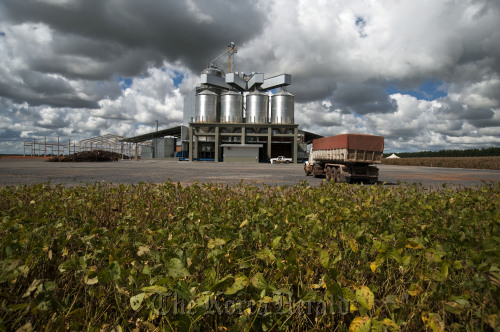CARACAS, Venezuela (AP) ― Latin America is blessed with a wealth of natural resources such as oil, copper and soy, and seeks investment and loans to capitalize on them. China needs the commodities to keep its economy growing and has about $3 trillion in reserves to burn.
Those interests have come together in a burgeoning and unorthodox partnership, as China lends and invests tens of billions of dollars in countries around Latin America in return for a guaranteed flow of commodities, particularly oil.
Recent deals have made China a key financier to the governments of Venezuela and Argentina. At the same time, Chinese companies have secured a decade’s worth of oil from Venezuela and Brazil, and steady supplies of wheat, soybeans and natural gas from Argentina.
China is breaking new ground by aggressively locking down commodities around Latin America through large loans, investments and other financial arrangements, said Orville Schell, director of the Center on U.S.-China Relations at the Asia Society in New York.
“I don’t know of any other government which has done this sort of securing of rights for commodities and natural resources so systematically around the Third World as China, and they’ve used a whole host of new financial instruments to do this,” Schell said.
“China’s been very, very prolific in spreading its investments around Africa and Latin America, even though the terms aren’t ideal.”
 |
A truck arrives to unload harvested soybeans at the Mamonas farm in Correntina, Brazil. (Bloomberg) |
Ernesto Fernandez Taboada, director of the Argentine-Chinese Chamber of Production, Industry and Commerce, said China is simply making sure it has the resources it needs to continue growing its economy, which, by some accounts, is projected to surpass the U.S.’s by 2020.
“For China, this is a strategic, long-term investment,” Fernandez Taboada said. “They’re thinking in the future, not just in the moment. These oil investments, for example, are for 15 to 20 years.”
Some of the largest investments have gone to Brazil and Argentina, but China has extended even bigger loans to Venezuela, agreeing to provide more than $32 billion to President Hugo Chavez’s government.
Venezuela will pay its debt in oil, and in increasing amounts of it during the next decade. The infusion of cash has swiftly made China Venezuela’s biggest foreign lender, enabling Chavez to boost spending ahead of next year’s presidential election.
“Viva China!” Chavez exclaimed during a televised meeting with business leaders from Beijing, thanking them for helping set up mobile phone factories and build railways and public housing in Venezuela. He gushed: “I’m in love with China.”
The relationship is driven in part by Chavez’s eagerness to form alliances that exclude the U.S. But it’s also good business for Chinese companies: Venezuela says it has been exporting to China about 460,000 barrels a day, about 20 percent of its oil exports, according to official figures. It hopes to double that soon.
“Venezuela has what we need,” said Chen Ping, political counselor at the Chinese Embassy in Caracas. “And we also have what they need, for example technology ... Therefore we can help each other mutually.”
The loans are typically secured against revenues from oil sales to Chinese companies, purportedly at market prices, though there could be discounts in some cases, said Erica Downs, an expert at the Brookings Institution think tank in Washington. She wrote a March report on the China Development Bank’s energy deals worldwide.
In many cases, financing is being channeled through the state-controlled China Development Bank, which has worked with Chinese companies to lock in commodity supplies.
Downs said such loans give Chinese state oil companies an edge by allowing them special access to local projects. In some cases, she said, such as in Venezuela and Argentina, the loans appear tied to hiring Chinese companies that carry out public works projects for the borrowing government.
China’s financing has also been unique, she said, in that in recent years “virtually no other financial institutions were willing to lend such large amounts of capital for such long terms.”
Countries such as Venezuela and Ecuador would otherwise have few options for obtaining such large lines of credit, in part due to their presidents’ hostility toward traditional lenders such as the World Bank and the International Monetary Fund, Downs said.
The China Development Bank has become a convenient “lender of last resort,” Downs said, and Venezuela’s government, in fact, has become the bank’s biggest foreign borrower.
In Ecuador, the Chinese oil company PetroChina agreed in 2009 to lend $1 billion to state company PetroEcuador in exchange for oil deliveries. The China Development Bank also agreed to lend $1 billion last year to Ecuador’s government, to be repaid through oil shipments.
The Chinese stake appears set to grow exponentially.
Direct Chinese investments totaled more than $15 billion in Latin America and the Caribbean last year ― 9 percent of the region’s foreign direct investment, according to a May report by the U.N. Economic Commission for Latin America and the Caribbean.
The report said that while the U.S. is still Latin America’s largest investment source, China has climbed to third place, behind the Netherlands.
In Argentina, Chinese companies have even replaced U.S. and British corporations in controlling lucrative natural gas and oil resources.








